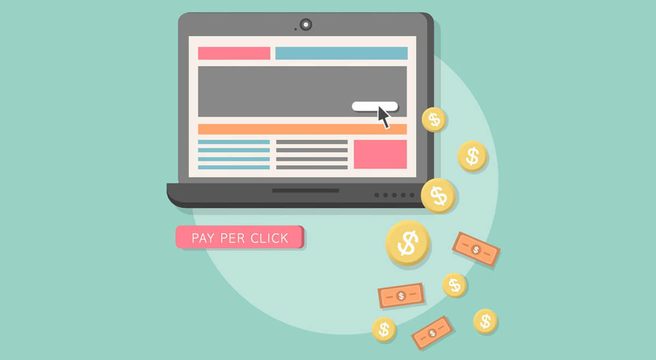 When many of us think about adding social proof to our marketing, our minds tend to immediately jump to the obvious – testimonials and reviews.
When many of us think about adding social proof to our marketing, our minds tend to immediately jump to the obvious – testimonials and reviews.
Though customer opinion is an important aspect of social proof, it’s by no means the only way that small businesses can use it to their advantage. The whole concept of social proof goes far deeper than mere reviews – it’s rooted deeply within the human psyche.
So if you’re up for a bit of psychology, let’s take an in-depth look at the concept of social proof and how small businesses can harness its power.
What is Social Proof?
Imagine you’re in a new town – say on holiday – and you’re looking for somewhere to eat or shop. Chances are you’ll gravitate towards bustling, full places. They have so many patrons, they must be good, right? By the same token, we also tend to avoid places that are empty when all around them are full. We see so many other people effectively endorsing one course of action over another, we immediately conclude that this must be the most advisable thing to do.
This is social proof in action. When we’re uncertain about something, we tend to subconsciously seek guidance from others on how to act, therefore imitating the actions of others in an attempt to reflect a “correct” way of behaving. It’s associated with “normative social influence” – or as it’s more commonly known – “herd mentality”.
Using Social Proof in Marketing
Marketers have long known about the herd-thinking aspects of advertising – just look at how long we’ve been using testimonials! Check out these fabulously oldy-worldy endorsements for Vin Mariani Wine for example. But in our modern, connected world, this type of influence is now more important than ever. Celebrity endorsements and influencer marketing work because they hijack our trust, respect and esteem for the person giving their stamp of approval – even though we know full well they’re getting paid!
For example, people trust the experienced beauty YouTuber who tells us that Wizzo brand eyeshadow gives all-day lasting coverage because they’re the expert. Their followers are therefore more inclined to give that brand a try.
We trust the well-liked, household name celebrity endorsing the soft drinks brand because their opinion comes with a certain credence; they’re an established figure who many people believe has good taste.
Men who follow football and also like to look after themselves may be more inclined to choose NIVEA MEN because of their recent endorsement by Liverpool FC – or perhaps less inclined, depending on where their allegiances lie!
12 Ways Small Businesses Can Market Using Social Proof
This may all be well and good for big brands like Nivea and Coca-Cola, but there are actually a number of ways that small businesses can harness the power of social proof in their marketing too. Here are 12 of our favourites:
- I know this is a bit of an obvious one coming from us, but there’s a lot to be said for the social proof that comes with online reviews. People are expressly looking for the guidance of others when they use trusted review sites like Yell, Facebook, and TripAdvisor. Maximise the exposure of glowing reviews by sharing them on social media and in your promotional copy. If you’re a B2B, you might also want to showcase your most high-profile clients by displaying their logos on your website.
- If your product or service is very visual, you can encourage happy customers to share pictures of your offering on social media. Ask people to use a particular hashtag exclusive to your brand when they share so their pics can easily be found. Show gratitude and celebrate those who post nice pictures and positive sentiment about your brand. Professional companies could even share a quick “behind the scenes” snap with a client at a meeting – with everyone’s permission of course!
- If your website has a blog, use a plugin like AddThis to include social share buttons, allowing people to share your content easily on social media. To give this a social proof twist – many social buttons like these allow you to display the number of times each post has been shared on social media. If people see that it’s already been widely shared, they’re more likely to share it themselves
- When you’re persuading people to do something, mention how many people have already done it; using copy like “Join over 1,000 happy subscribers today” for example
- Create case studies about successful projects, explaining how your product or service has served others. If you can, always include specific figures illustrating how you helped, such as “We helped ABC & Co. increase their yearly revenue by X%!”
- Online retailers may benefit from using real-time statistics on product pages, for example, “A user just added this item to their cart!” or “26 of this item sold in the last hour!”
- Share news of award wins, nominations, and places in finals or shortlists. This proves you’re an established company who are well liked and respected by your peers
- Have you ever been mentioned (positively) in a large media publication like a national newspaper? Brag about it! Don’t be afraid to occasionally refer to yourself as “XYZ as mentioned in (Name of Publication)” at strategic places within your copy.
- If you supply boutique products, you may want to look into working with appropriate brand ambassadors or micro-influencers. To learn more about the basics of influencer marketing, check out our recent article – Influencer Marketing: What Small Businesses Need to Know

- If you have a large enough engaged following on a particular social media platform, consider applying for a verified account – usually indicated by a blue tick badge next to your account name. It shows that the social platform has verified your organisation’s identity and sees you as authentic. For example, our @YellBusiness Twitter account is verified, as you can see from the blue badge
- Take public pride in social achievements like the number of 5-star reviews you have, your number of email subscribers or of social followers on a given platform. For example “We’ve just hit 2,000 followers on Twitter! A huge thank you to all of our followers!”.
- And finally, the best possible social proof – word of mouth! Referrals from within your own network can be incredibly powerful – especially if you haven’t had to ask for them!
[bctt tweet=”What exactly is #socialproof and how can it help your #smallbusiness #marketing? ” username=”yellbusiness”]
How do you currently use social proof? Do you use any of the 12 strategies listed above? Are there any you’d like to share? Let us know down in the comments!






